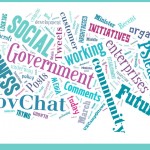November 23, 2013
Minister Clement Promotes the Canadian Open Data Experience (CODE) with Tech Students in the Waterloo Area
The Honourable Tony Clement, President of the Treasury Board, recently spoke about the Government of Canada’s first national appathon, the Canadian Open Data Experience (CODE), to students and data enthusiasts at Wilfrid Laurier University and the University of Waterloo.
“Our Government is promoting and supporting CODE to encourage entrepreneurial innovation that leads to the start-up of new business, economic expansion and job creation,” said Minister Clement. “Innovations like the apps created at CODE will ensure Canada remains at the forefront of the global Open Data movement.”
The Canadian Open Data Experience will appeal to innovators, students, technology experts and developers, who will be challenged to use and explore roughly 200,000 datasets on data.gc.ca, the Government of Canada’s Open Data Portal. The contest will take place next February, and will encourage participants to create apps that solve real world problems for the benefit of Canadians.

 I spoke to a group of civil servants this week as part of their development program’s lunchtime speaker series; the talk covered a lot of ground and I wanted to take the opportunity to share some of my key messages from the discussion.
I spoke to a group of civil servants this week as part of their development program’s lunchtime speaker series; the talk covered a lot of ground and I wanted to take the opportunity to share some of my key messages from the discussion.